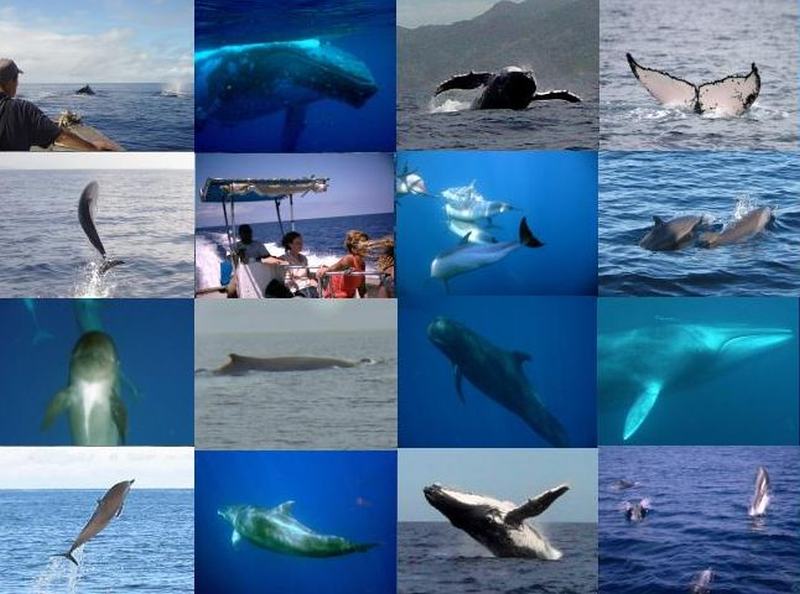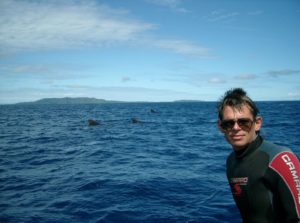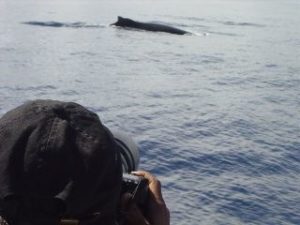
| Home | Pilot Whale | Spinner Dolphin | Humpback Whale | Spotted Dolphin |
| False Killer Whale | Bottlenose Dolphin | Fin whale | Guidelines | Fiji whale sanctuary |
Whales and dolphins are protected in Fiji since 2003 when the Fijian Government declared Fiji’s Exclusive Economic Zone as a Whale Sanctuary.
The Fiji Islands with their diversity of different ocean environments, with shallow protected lagoons and the abyssal depth of the ocean outside the reefs, are an ideal environment for large marine life.
 There are several pods of pilot whales and dolphins that inhabit those waters, as well as other cetacean species like humpback whales, false killer whale, minke whale, sperm whale, fin whale…. that migrate through Fiji waters or visit on yearly migratory patterns.
There are several pods of pilot whales and dolphins that inhabit those waters, as well as other cetacean species like humpback whales, false killer whale, minke whale, sperm whale, fin whale…. that migrate through Fiji waters or visit on yearly migratory patterns.
Whale watching in Fiji
Commercial whale and dolphin watching tours are just starting to set up in Fiji.
Most of these activities concentrate primarily on observation of spinner dolphins as this species is the most common. There are resident pods of spinner dolphins that are frequently observed and studied.
Watching other cetacean species is rather opportunistic in nature as part of fishing/diving and other tourist-based activities.
NAI’A Fiji Liveaboard Dive Adventures conducts yearly seasonal Humpback Whale Watching Expeditions primarily in the Kingdom of Tonga as this is one of the main calving and mating grounds for the and breeding ground southern humpback population.
Marine Conservation of whales and dolphins in Fiji
The Fijian Government has declared Fiji’s Exclusive Economic Zone as a Whale Sanctuary. This is to keep in line with international obligations under the Convention on Biodiversity and the United Nations Law of the Sea Convention (UNCLOS). The declaration also acts as a catalyst for research and raising public understanding and the ability to manage Fiji’s marine biodiversity.
 Several Non-Governmental Organisations like Working abroad, Global Vision International, Frontier, and others have become involved in cetacean conservation projects. They mainly provide for visitors to participate in short-term “gap experience” programs. Most of those organizations charge a hefty fee for participation in their conservation projects but provide a good opportunity to get involved locally.
Several Non-Governmental Organisations like Working abroad, Global Vision International, Frontier, and others have become involved in cetacean conservation projects. They mainly provide for visitors to participate in short-term “gap experience” programs. Most of those organizations charge a hefty fee for participation in their conservation projects but provide a good opportunity to get involved locally.
The Fiji Fisheries Department, the University of South Pacific, WDC, WCS all conducting surveys and data which help to establish an overview of the current status of whales and dolphins around the Fiji Islands.
All images on those pages are taken during whale and dolphin encounters in the waters around Levuka/Ovalau.